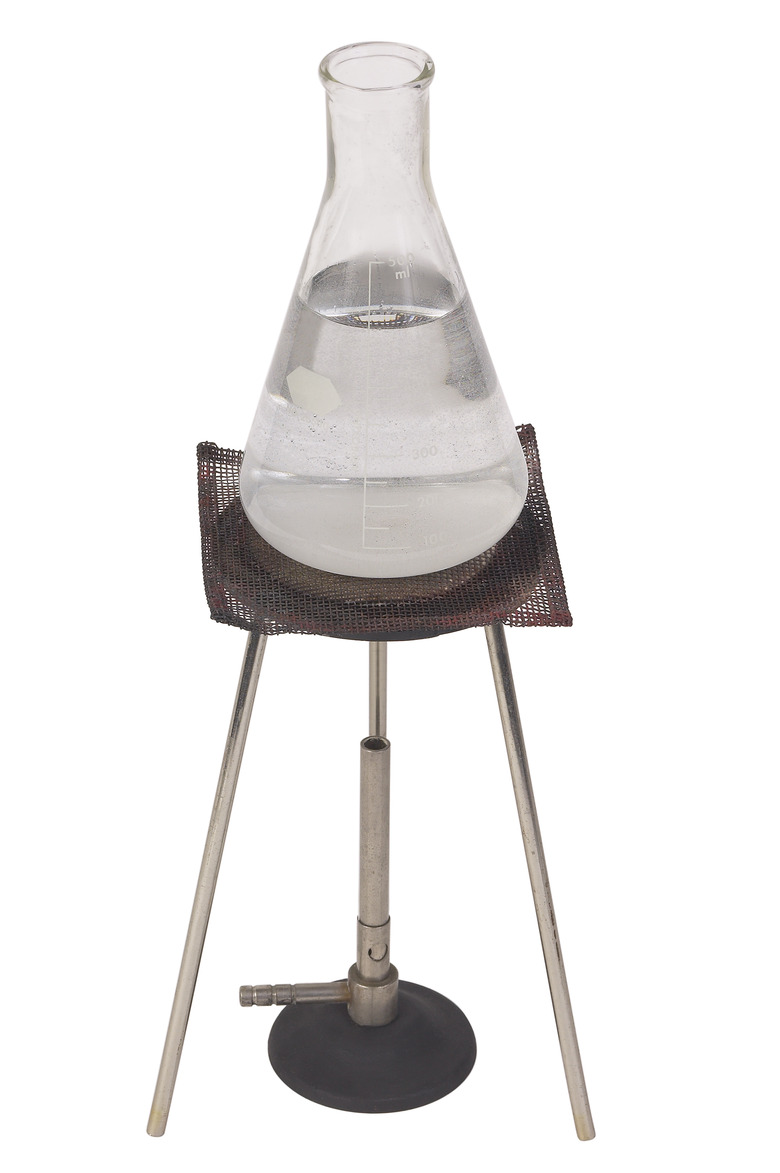What Is The Unit For Enthalpy?
Enthalpy tells us the total energy of a system and how much heat it uses at constant pressure. Mathematically, enthalpy is the sum of the internal energy of a system and the work done by or to that system. Work is the product of the system's pressure and volume. The units of enthalpy are the same as the units of its components, internal energy, pressure and volume.
Unit for Enthalpy
Unit for Enthalpy
Enthalpy is expressed as the equation "H = U + P_V." The standard unit of pressure is a pascal, or a kilogram per meter per second-squared (kg/[m_s^2]). The standard unit for volume is meter-cubed (m^3). The product of these units is a kilogram meter-squared per second-squared ([kg*m^2]/[s^2]). This is also known as a joule. This is the same unit as the internal energy, U. The unit for enthalpy, the sum of these two units, is also a joule.
Cite This Article
MLA
Santos, Kay. "What Is The Unit For Enthalpy?" sciencing.com, https://www.sciencing.com/unit-enthalpy-9036/. 24 April 2017.
APA
Santos, Kay. (2017, April 24). What Is The Unit For Enthalpy?. sciencing.com. Retrieved from https://www.sciencing.com/unit-enthalpy-9036/
Chicago
Santos, Kay. What Is The Unit For Enthalpy? last modified March 24, 2022. https://www.sciencing.com/unit-enthalpy-9036/
